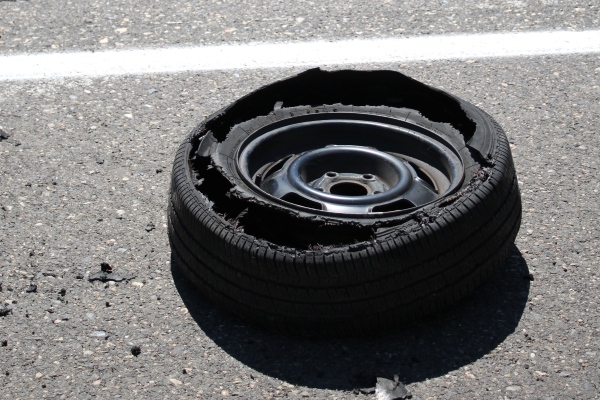
The EU tyre and battery sector is haemorrhaging €2.4bn every year as a result of fakes, a new report reveals.
Published by the EU Intellectual Property Office (EUIPO), the sector-specific report highlights the implications of counterfeits in the industry, including the impact on industry sales and jobs, as well as government revenue.
The study considers the manufacture of rubber tyres, inner tubes, tyre treads, and rebuilding of rubber tyres. It also covers the manufacture of different types of batteries and electric accumulators, which are mostly used in the vehicle sector but are also found in the mobile phone sector.
According to the report, €2.2bn is lost each year due to counterfeit tyres, with €180m lost annually because of the presence of counterfeit batteries. That equates to 7.5 per cent and 1.8 per cent of all sales for the sectors, respectively.
Those lost sales translate into almost 8,400 jobs lost directly across the two sectors, as legitimate manufacturers employ fewer people than they would have done in the absence of counterfeiting, the report found.
Meanwhile, the total loss of government revenue from taxes as a result of fake tyres and batteries amounts to €340m.
“We hope that the findings of this report, which looks at two important economic sectors in the EU, will help policymakers as they study ways of combating counterfeiting,” said António Campinos, executive director at EUIPO. “Furthermore, as fake tyres and batteries can have significant safety and environmental consequences, we also hope it will help consumers to choose wisely when purchasing these vital items.”
Based on the percentage of lost sales, Lithuania was the EU country most affected by fakes with 19.2 per cent of its sales lost as a result of fake tyres (equating to €15m in lost sales) and 5 per cent lost from fake batteries (equating to €1m in lost sales).
In absolute terms, the impact is greatest in Spain – losing €445m to fake tyres and €32m to fake batteries. This equates to 17.6 per cent and 4.6 per cent of sales from the country’s tyre and battery sector, respectively. Spain was followed by France with €438m lost across both tyre and battery sectors, Germany (€292m), Italy (€274m) and the UK (€214m).

Epson builds market awareness of authentic product through implementation of layered anti-counterfeiting technology

The five largest EU member states account for €1.7bn lost due to counterfeiting, which amounts to 70 per cent of the total lost sales in the EU for the sector.
Germany, France, Italy and Spain are the main manufacturers of tyres and batteries in the EU, while the UK is a major importer of both products.
Meanwhile, the report found the country least affected by counterfeiting of tyres and batteries in relative terms was Finland, with 3.1 per cent and 0.8 per cent of sales lost respectively.
The report also considered the knock-on effects on other industries, both direct and indirect, and found that counterfeiting in these two sectors causes approximately €4.8bn of lost sales to the EU economy, which in turns leads to employment losses of 22,283 jobs.
Meanwhile, only sales inside the EU are considered, so the extent that counterfeit products in non-EU markets displace exports of legitimate EU producers, there is a further loss for EU firms not captured by the report, EUIPO said.
While the report focused on the economic consequences of counterfeit tyres and batteries, the report did note that fakes of these items also had safety and environmental impacts. Notably, the report pointed out that tests carried out by the industry showed fake tyres with 1.4 mm tread depth and regrooved tyres (doctored to look new despite actually being older tyres with little or none of the original tread left) result in clear safety risks for users.
“In addition to the user safety aspect, counterfeit tyres and batteries can also cause damage to the environment, as the materials used to manufacture counterfeit parts may fail to meet safety standards and do not always comply with environmental protection standards,” the report said.
This report is the twelfth in a series of studies released by the EUIPO, via the European Observatory on Infringements of Intellectual Property Rights, into the economic impact of counterfeiting on industrial sectors in the EU.
Previous reports have looked at cosmetics, clothing, sports goods, toys and games, jewellery and watches, handbags, recorded music, spirits and wine, pharmaceuticals, pesticides, and the smartphone sector.
Image courtesy of shnomoe / Pixabay
©
SecuringIndustry.com
 | back to top
| back to top





